June 2, 2025 | 02:22 GMT +7
June 2, 2025 | 02:22 GMT +7
Hotline: 0913.378.918
June 2, 2025 | 02:22 GMT +7
Hotline: 0913.378.918
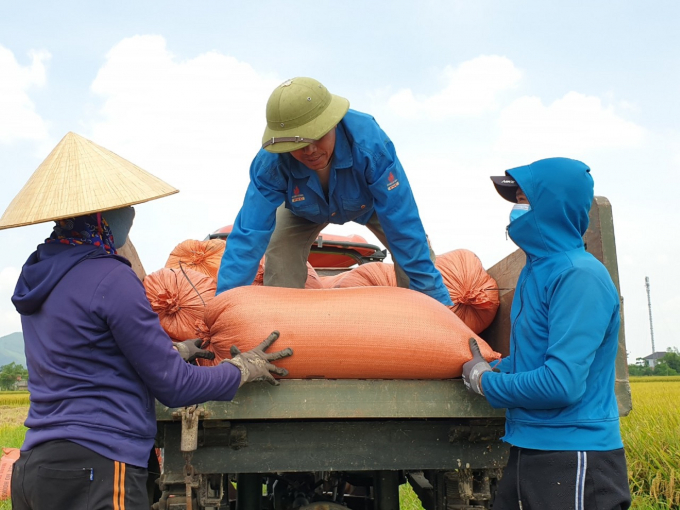
The reason for the decrease in rice prices is that it is difficult for products to go to China’s market. In addition, the transportation and warehousing costs increase and the quality of rice is uneven. Photo: Vo Dung.
It is at the peak of harvest season in Duc Tho district, one of the largest rice granaries in Ha Tinh province. There are not any scenes of busy trading or trucks crowdedly moving back and forth to purchase rice like every year. The harvest season seems to be quiet because the price of all kinds of rice has dropped sharply.
According to a survey, the rice price is being bought by small traders and businesses at the foot of the field at VND 4,500 - 5,000 per kg depending on the type and quality. This purchase price is VND 800 - 1,000 lower than last year.
Particularly, some types of high-quality rice with relatively good commercial value such as ST25, ST24, Bac Thinh ... are classified in the highest price group, ranging from VND 5,700 - 6,000 per kg of fresh rice.
In Cam Xuyen district, the price of rice is also low compared to other regions. The productivity of this year's spring crop in most localities of the district has reduced, many areas have lost entirely. Meanwhile, the price of input materials such as seeds, fertilizers, plant protection drugs... has increased, causing heavy damage to farmers.
Ms. Tran Thi Mai, a farmer in Cam Thanh commune, Cam Xuyen district says, the price of fresh rice Khang Dan 18 is being purchased from VND 4,500 - 4,700 per kg, Nep 98 is "slightly" better, but not more than VND 6,000 per kg. In some previous years, the price of these two types of rice was up to VND 5,500 per kg for Khang Dan 18 and nearly VND 8,000 per kg for Nep 98.
“This year, income form selling 3 - 4 kg of rice can only buy 1 kg of nitrogen, even the rent of the reaping machine also increases by VND 20,000 to 30,000 VND per 0.05 ha. In addition, pests and diseases reduce rice yield, so income from 1 acre of my family's field of fresh rice is not enough to cover the investment costs", Ms. Mai sighs and quickly wipes the sweat on her forehead.
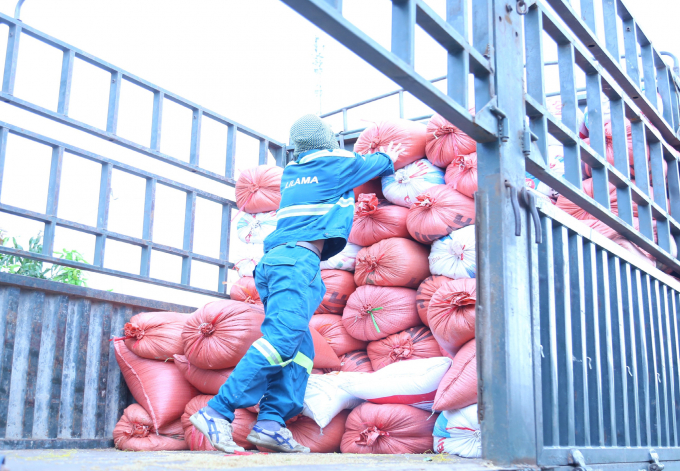
The reason for the decrease in rice prices is that it is difficult for products to go to China’s market. In addition, the transportation and warehousing costs increase and the quality of rice is uneven. Photo: Vo Dung.
Being busy carrying rice to the truck to transport to the collection point, Mr. Pham Huu Tuan, a farmer in Cam Thanh commune shares: "Now the trucks of purchasing company do not go to the fields like before, so we have to hire small trucks to transport rice to collection points. It is much harder and costs more.”
The low price of fresh rice at the foot of the field is not only happening in a few localities but is almost the general situation in Ha Tinh province.
Mr. Tran Xuan Manh, a farmer in Xuan Loc commune, Can Loc district, says that this year his family produces nearly 2 acres of fields, the yield is estimated at 2.7 - 2.8 quintals per 0.05 ha. Varieties such as Khang Dan 18, Xuan Mai 12, Thai Xuyen 111, TH3-3… can only be purchased by traders at the highest price of VND 4,900 per kg. Only Nep 98 and Nep 87 varieties have good prices and are easier to sell, but compared to a few years ago, they are still far behind.
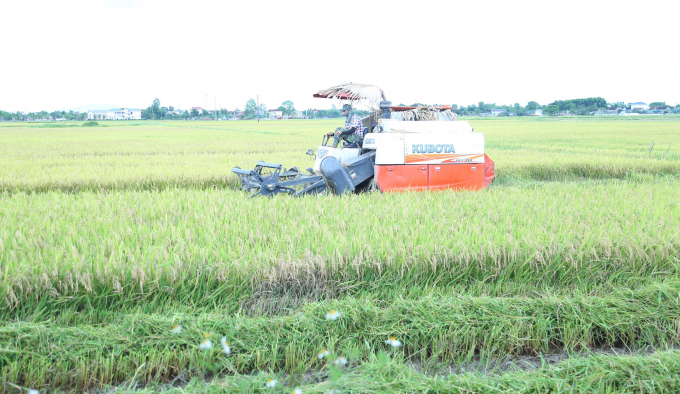
In this year's spring crop, the purchase price of fresh rice in Ha Tinh falls sharply, while input prices of materials increase sharply, causing losses for farmers. Photo: Vo Dung.
According to some farmers, besides Khang Dan 18, Xuan Mai 12, Nep 98, and Nep 87 varieties, it is difficult to find buyers for other types of rice, not to mention the price.
Ms. Nguyen Thi Hanh, Director of Hanh Cuong Agricultural Products Processing - Service - Trading Cooperative in Ha Tinh city, says that the enterprise is currently focusing on human resources to purchase rice for farmers in Cam Xuyen, Can Loc, Thach Ha, Loc Ha, Duc Tho, etc. districts at the same time to transport to the northern provinces, with an amount of about 1,000 tons.
“The market price in the North is at a low level, while transportation costs are high due to the continuous increase in fuel prices, so we can only buy for people at the price of VND 4,800 - 5,000 per kg. It is expected that the cooperative will buy about 2,500 - 3,000 tons for farmers in the province,” Ms. Hanh says.
The reason for this year's decrease in rice prices is that it is difficult for products to go to China’s market. The increase in transportation and warehousing charges also makes most of the big merchants mainly serving the domestic market.
Meanwhile, due to the influence of many bad weather, pests and diseases, the quality of many varieties is uneven, many seeds are flat. This has caused small traders being picky in choosing rice over the previous years.
Translated by Duc Thuan
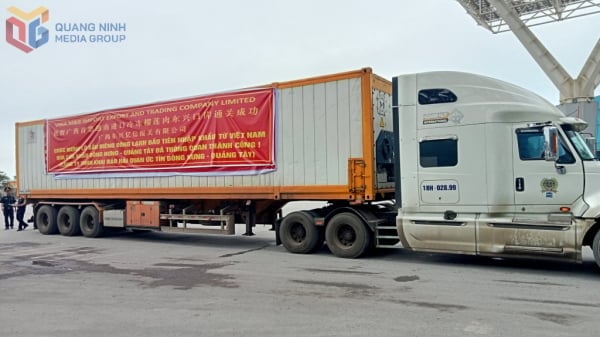
(VAN) After the talks on May 28, Vietnam successfully exported its first batch of frozen durians to China, marking a new milestone in agricultural trade cooperation between the two countries.
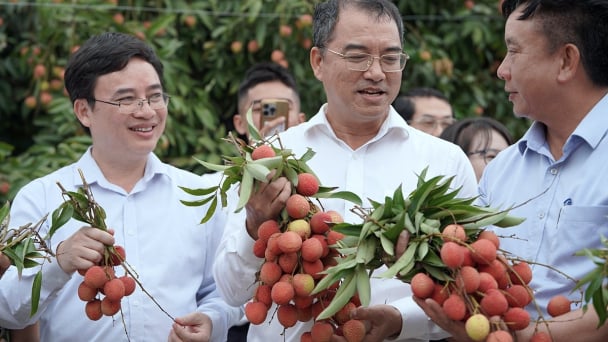
(VAN) Several major companies, such as Red Dragon and Ameii Vietnam, have signed purchasing agreements for the 2025 season, targeting markets including Japan, the United States, and the EU.
/2025/05/30/5010-5-173638_943.jpg)
(VAN) On May 29, at the GO! My Tho Trading Center, the Tien Giang Department of Industry and Trade, in collaboration with Central Retail Corporation, held the opening ceremony of the 3rd Fruit Festival 2025.
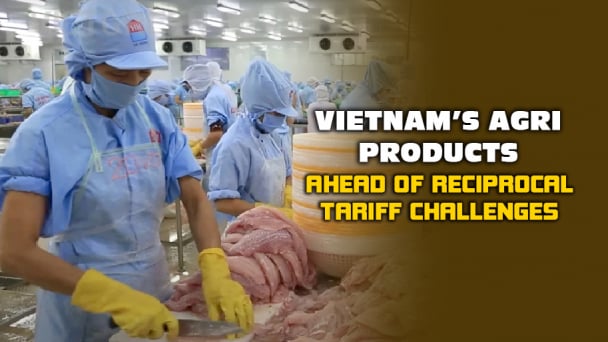
(VAN) Reciprocal tariffs are exerting pressure on U.S. exports, prompting Vietnamese firms to shift their focus to Muslim markets, Thailand, and Brazil.
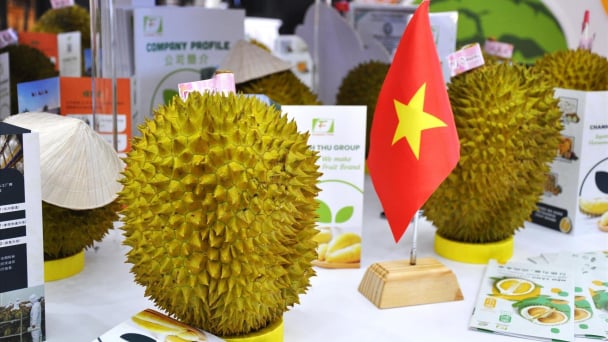
(VAN) A free booth for two years at Xinfadi, Beijing's largest wholesale market, will be allocated to Vietnam's agricultural products.
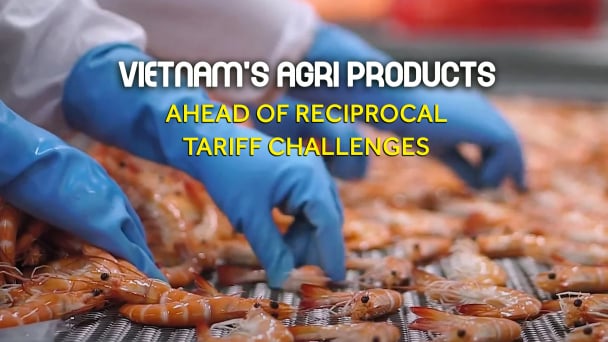
(VAN) Vietnamese shrimp exporters are actively looking for alternative markets and accelerating shipments to the United States in response to the pressure of impending reciprocal tariffs. This is occurring during a temporary tariff suspension.

(VAN) The import-export turnover between Vietnam and Singapore rose amid a trade rebound, with machinery, electrical equipment, and fuels making up the majority of the transaction value.